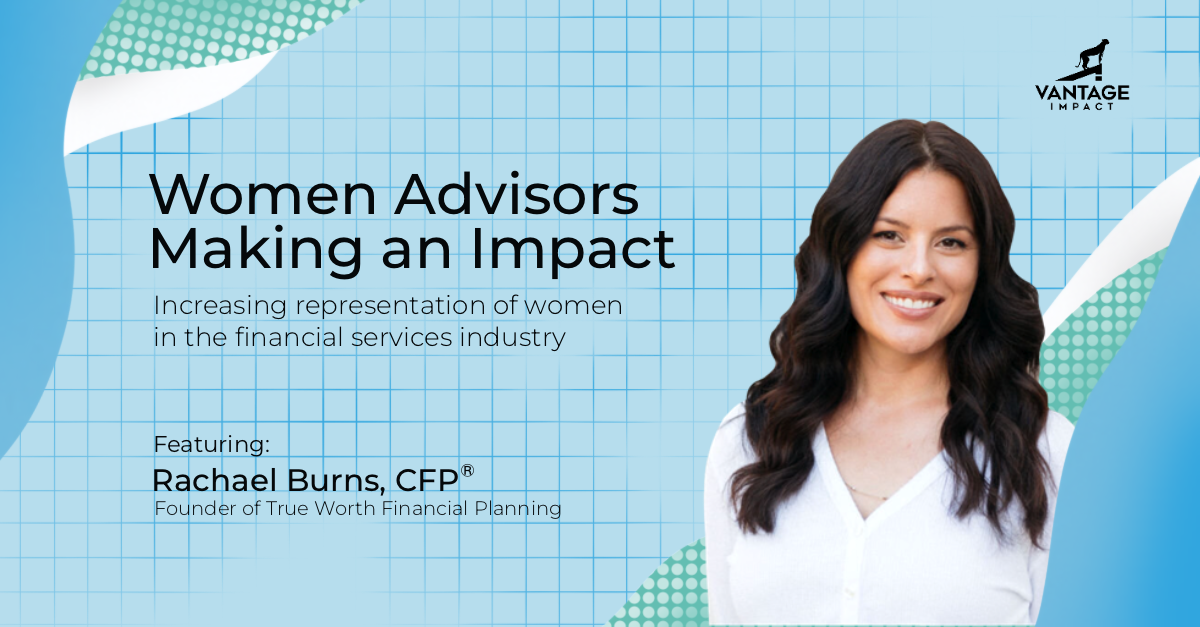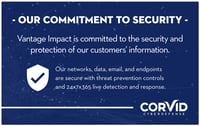Rachael Burns
A Leap Worth Taking
How Rachael Burns Found Work-Life Balance By Building An Independent Practice—And Why It Was Easier Than She Imagined

Like many people, Rachael Burns left her office in March 2020 for what was supposed to be a short stint working from home, in an effort to slow the spread of Covid-19.
“I remember leaving the office saying, ‘Okay, see you in two weeks!’ And obviously, that’s not how it went,” she says.
A financial advisor on a team affiliated with Ameriprise, Burns had never imagined working from home before, especially while taking care of one-year-old twins, but the start of the pandemic forced her to try it out.
“It ended up being such a good experience personally to have that time at home with my family, even though it wasn’t under ideal circumstances,” Burns remembers. “We got to have so much time with our kids when they were a year old, and that wouldn’t have happened.
“Once I realized how awesome that was, I thought, ‘Why don’t I work from home all the time? I like this lifestyle.’”
Up until that point, Burns had spent her career working for large broker-dealers. She was hired out of college into the financial advisor training program at Morgan Stanley, but it was 2008, and not a great time for new advisors to start building books of business. She pivoted to another role at the company, training advisors on the firm’s technology, and then eventually went back to school to earn her MBA. During that time, she also worked full time in client services at Morgan Stanley. When she graduated, she had an offer waiting from a local Merrill Lynch team, and they ultimately lured her away.
“They were a really successful team, specifically looking to add a female advisor,” Burns said. “I was just so impressed with how organized they were, how well they took care of clients.”
Burns and her team eventually transitioned to Ameriprise to better serve their clients. She noted that moving the whole team and all of their clients was a big undertaking, and stressful at times.
“Once we got there, it was certainly worth the trouble,” she says. “That was a really great place for us, and a great place for our clients.”
In the years leading up to the start of the pandemic, Burns learned the value of a supportive team as she dealt with some personal issues.
“Nothing went according to plan for a couple years,” she says, describing a string of medical challenges she and her husband faced. He was diagnosed with brain cancer and had to undergo chemotherapy and radiation; she gave birth to the twins, and experienced severe complications during her recovery. Then, she needed back surgery.
“Thankfully, I had a team that totally supported me. They made sure I was taken care of, that my clients were taken care of. That was a really incredible thing that they did for me,” she remembers.
“I was recovering from back surgery, and then Covid hit.”
Two weeks of remote work turned into months with no end in sight, and Burns started to wonder if she could work from home permanently. Her priorities had shifted, and flexibility had suddenly become more important to her than she ever imagined it would be.
While her husband’s health improved (and remains stable today), she worried there would be times in the future when she would need to step away or require a more flexible workload, and she didn’t want to put that burden on her team. She yearned for more control and didn’t think that would be possible working for a traditional wealth management firm.
Meanwhile, as Covid continued to impact everyday life, Burns was taking daily walks with her twins. While pushing the stroller, she listened to financial podcasts. She stumbled upon the XY Planning Network (XYPN) podcast and started thinking about starting her own RIA.
“I had always thought, ‘Why would anyone want to do that?’” she says, assuming she would be bogged down with administrative and office management tasks as an independent advisor.
She then learned that you could outsource almost anything. There were compliance services, technology stacks, and other products designed to make running a business easier for financial advisors. All of this information made going independent a viable option, which had never occurred to Burns before.
“I just assumed it would be super expensive, or a nightmare compliance-wise,” she says. “But then I realized that it is doable, and it actually was very appealing with my situation, my goals for my business, and who I wanted to work with.”
Once she came to the realization that starting an independent practice was what she wanted for herself, she moved quickly, formally leaving her job with Ameriprise and learning everything she could about how to transition.
“It was heartbreaking going to my team to tell them that I was leaving, because they had done so much to help me,” she says. “I loved these people, they’re like my family. But they totally understood.”
With full control over her practice, Burns decided she was only going to work with women, and that she could provide particular value to women who had recently experienced a divorce or the death of a spouse. Burns felt she had certain strengths that would support these types of clients, and True Worth Financial Planning was born.
Divorce and death can be uncomfortable topics, and many financial advisors avoid asking questions and miss important pieces of the client’s financial picture, Burns says. This can also make the client feel like they’re not being heard or understood, she explains. Having gone through her husband’s cancer diagnosis and treatment, Burns knows first-hand how emotional financial planning can be during difficult life changes. She feels comfortable asking the questions other advisors might avoid.
“Because of that, I’m able to give better quality advice, because I’m addressing all different parts of their life,” she says. “Not just their finances.”
Choosing to target this niche made everything easier, Burns says.
“It made marketing so much easier, because you aren’t trying to cast this giant net,” she says. Messaging and branding fell into place because she knew exactly what would resonate with her ideal clients, and she was able to be more efficient in her approach.
“I can set up these processes that I can take every client through—still have it be a very customized experience for them—but I’m not reinventing the wheel every time I meet with someone,” she explains. It made her wonder how she went so long in the traditional wealth management world.
“I wasn’t unhappy,” she says. “I loved my work and I loved my clients. But when I realized how good it could be, when you’re doing exactly what you want to be doing, you don’t even realize you’re capable of so much joy in your career.
“I still can’t believe I made a job out of thin air, and that I’m allowed to do that,” she marvels. “It’s so amazing.”
Burns didn’t know any other independent advisors when she started her business. Because of that, she’s very open about sharing her experience with others considering a change.
“I really want more people to know how amazing it is, because there needs to be more of us,” she says. “We need to have more advisors who can work with different types of clients, because certain types of clients are underserved.”
Burns says reaching out to someone who’s started an RIA and picking their brain is the best first step, so you can learn what to expect and what you need to have lined up to get started. Most people are willing to have a 15-minute chat, she says, and LinkedIn is a great place to start the conversation with other advisors. She also recommends researching online.
“You can spend a little bit of time each day listening to a podcast or reading a blog, and you can learn all the things you need to know to be ready to [start an independent practice] in a relatively short amount of time.”
Burns is passionate about telling her story and helping other women understand that financial advising can be whatever they want it to be.
“People have an idea in their mind about what being a financial advisor looks like, which is true if you go work at a big firm, but there are so many other options available—and it’s a job that is surprisingly well-suited for moms,” she says. “It’s so much more flexible than you would think.”
She also says that there is a misconception that you have to be an investing expert to be a good financial advisor.
“I realized that it is 90% relationship-building—it’s getting to know people, and getting to know what their goals are,” Burns says. “And then you have to do a little problem-solving to figure out how to help them reach those goals. But you have tools to work with. There’s a learning curve, but you don’t have to be an investment expert.”
“I think if more people knew about that, we would have more women in finance.”


